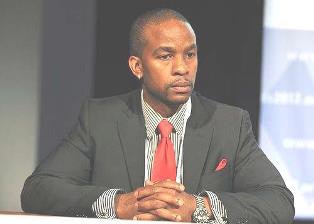 Wade Davis II, director of the You Can Play Project, says it’s not uncommon for gay athletes to come out to his or her coaches and teammates and it not become an issue.
Wade Davis II, director of the You Can Play Project, says it’s not uncommon for gay athletes to come out to his or her coaches and teammates and it not become an issue.
While Sam’s journey has been well-chronicled and publicly supported, experts say collegiate athletes are often at a loss when it comes to LGBTQ outreach and education. Among the reasons cited are that campus climate discussions usually do not include athletes when issues of Lesbian, Gay, Bisexual, Transgender and Queer (LGBTQ) inclusion arise as some refrain from getting involved for reluctance of being “outed” and its potential ramifications.
“The sports environment is very closed off,” said Wade Davis II, director of the You Can Play Project (YCP). “Most people who are athletes do not have access to LGBT spaces and are therefore forced to function in the stereotypical roles of athletes.”
Among other athletes who recently have come out in either college or pro sports are Jason Collins of the NBA’s Brooklyn Nets, Britteny Griner of the WNBA’s Phoenix Mercury, and University of Massachusetts basketball player Derrick Gordon, the first openly gay player in NCAA Division I men’s basketball.
Davis told Diverse that his organization and others exist to help better support LGBT athletes. Although the NCAA has made progress in promoting a positive environment on campuses through its Office of Inclusion and the professional sports leagues have their own initiatives, Davis said more could be done in regard to identifying trends, clarifying misconceptions and highlighting challenges the student-athletes could face in professional and collegiate athletics.
For example, Davis says that it is fairly common to play sports as an LGBT athlete without incident.
“(Sam’s) story is rather typical in telling just his teammates and coaches initially,” said Davis, who retired from the NFL in 2003 and spoke out in 2012 on his experience of being closeted and gay in the league. “There are many players who are out to their teams and being embraced, co-existing as athletes with little to no issue. There are a lot more of these instances than is normally reported.”




















